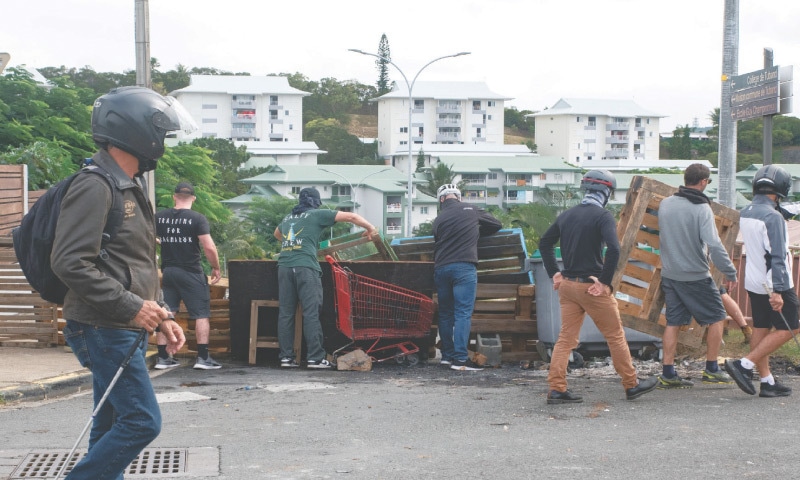On the Pacific island of New Caledonia, France on Wednesday declared a state of emergency following the deaths of three young Kanak indigenous people and a police officer in riots over electoral reform, according to Reuters.
At 5 a.m. local time (1800 GMT), the state of emergency was declared, giving authorities more authority to prohibit gatherings and prevent anyone from leaving the French-ruled island.
500 more police officers have been directed to the island to join the 1,800 already on duty after protesters set fire to cars and shops and looted stores. The capital has already imposed a curfew and closed its schools.
A new bill that allows French citizens who have lived in New Caledonia for ten years to vote in provincial elections sparked riots on Tuesday. Some local officials worry that this will weaken the Kanak vote. The bill was approved by parliamentarians in Paris.
Prime Minister Gabriel Attal declared, "No violence will be tolerated," and added that the state of emergency "will allow us to roll out massive means to restore order."
Later, he declared that the main port and airport of New Caledonia would be secured by the French military and signed an order establishing a 12-day state of emergency.
Additionally, the government chose to ban the video app TikTok, claiming that it assisted rioters in organizing and intensifying the unrest, drawing troublemakers to the streets during last summer's disturbances on the French mainland.
Three young Kanak people who are indigenous to New Caledonia were killed in the rioting, according to a spokesman for President Louis Mapou earlier in the day. Later, the French authorities said that a police official, 24 years old had passed away from a gunshot wound.
Interior Minister Gerald Darmanin said, "He took off his helmet (to speak to residents) and he was shot right in the head."
Yoan Fleurot, a resident of Noumea, told Reuters in a Zoom interview that he was afraid for his family and was remaining at home to follow the evening curfew.
"I don't see how my country can recover after this," Fleurot remarked, adding that he goes out during the day to video the rioters, whom he has labelled as "terrorists," and he always carries a rifle.
Residents told Reuters that protesters outnumbered the police.
Located in the southwest Pacific, around 1,500 km (930 miles) east of Australia, the mineral-rich island is the subject of a decades-long dispute over France's involvement, with electoral reform being the most recent flashpoint.
The island was acquired by France in 1853, and the colony was granted foreign territory status in 1946. Pro-independence movements have rocked it for a long time.
LOOTING
As the third-largest nickel miner in the world, New Caledonia's citizens are affected by the industry's difficulties, with one in five of them living in poverty.
Henri, 30, a hotel employee in Noumea, stated, "Politicians have a huge share of responsibility."
"Loyalist politicians, who are descendants of colonialists, say colonisation is over, but Kanak politicians don't agree. There are huge economic disparities," he said.
There was a lot of looting, according to Henri, who would not reveal his full name, and things were especially risky at night.
According to the French government, the new voting regulations were necessary to ensure democratic elections.
It has invited pro- and anti-independence factions for negotiations on the island's future in Paris but stated that it would not rush to organize a special congress of the two houses of parliament to ratify the bill. This leaves open the possibility that the law would be suspended.
Leading independence-minded political organization Front de Liberation Nationale Kanak et Socialiste (FLNKS) expressed its condemnation of the violence, stated that it would take up the discussion offer, and stated that it was prepared to work toward a settlement "that would allow New Caledonia to follow its path toward emancipation".
Garrido Navarro Kherachi, the witness, stated that she has never returned to France since moving to New Caledonia when she was eight years old. She claims that even though she is qualified to vote under the new regulations, she will not "out of respect for the Kanak people".
She further said, "I don't feel I know enough about the history of Caledonia and the struggle of the Kanak people to allow me to vote."



























